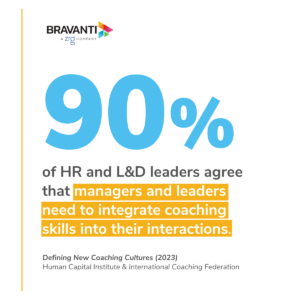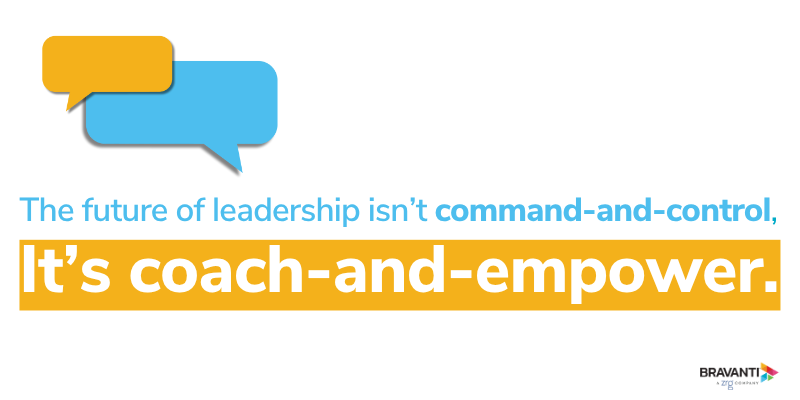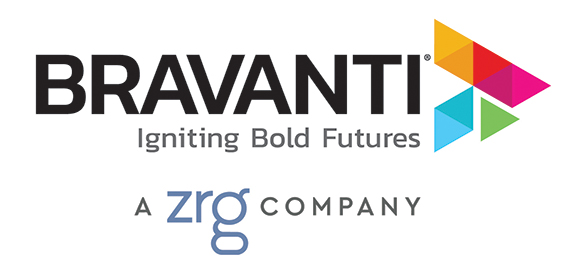Welcome to Coaching as a Leadership Capability, a three-part series exploring how coaching is transforming modern leadership from command-and-control to coach-and-empower. From the conversations that matter to building capability at scale, each piece offers actionable insights for leaders and organizations.
In a world of constant change, leaders are under more pressure than ever — not just to perform, but to also guide, develop, and inspire those they lead.
Strategy, operations, execution — these are expected. But today’s most effective leaders are also coaches. They know that sustainable success comes not from having all the answers, but from creating the space for others to grow, take ownership, and lead with confidence.
This is where coaching cultures and building the coaching capability of organizational leaders come in.
Demand for Leaders Who Coach is High––And Growing
 Equipping leaders with coaching skills is a fast-growing priority for organizations around the world.
Equipping leaders with coaching skills is a fast-growing priority for organizations around the world.
A 2023 study by the International Coaching Federation (ICF) revealed that 90% of HR and L&D leaders agree that managers and leaders need to integrate coaching skills into their interactions, reflecting a growing recognition of coaching as a valuable tool.
Much like building leadership resilience, building internal coaching capabilities isn’t about building soft skills — it’s about establishing a strategic advantage. And the leaders who master it are the ones who build stronger teams, drive culture change, and accelerate transformation.
Why the Best Leaders Are Coaches
As organizations face more complexity, change, and cross-functional collaboration, the ability to coach becomes a critical leadership skill — not just for a select few, but for managers and executives at every level.
Building internal coaching capability means equipping leaders to have more effective, human-centered conversations. It turns performance management into growth partnerships. It transforms team dynamics, strengthens retention, and accelerates readiness for next-level roles.
By the Numbers: The Impact of Building Coaching Capabilities
- Organizations where managers are expected to coach their team members are significantly more likely to be high-performing companies than those that don’t (Association for Talent Development).
- Companies with strong coaching cultures report 33% higher revenue growth than those without (International Coaching Federation).
- Employees who receive valuable feedback, a key component of coaching, are 5x more likely to be engaged in their work and 57% less likely to be burned out (Gallup).
- “Connector” managers (who coach by connecting employees to others, resources, and feedback) boost team performance by 26% and 3x the likelihood that the employees they coach will be high performers (Gartner).
- 62% of organizations with a strong coaching culture reported improved retention of top performers (ICF + The Human Capital Institute).
When coaching is embedded into the everyday — into 1:1s, team check-ins, feedback loops, and development plans — it becomes a force multiplier. It scales leadership impact, unlocks untapped potential, and enables the kind of agility and trust today’s organizations need most.
But this shift doesn’t happen by chance. According to Gallup, only two in 10 managers instinctively know how to coach––meaning that, on average, 80% of people leaders will need to be trained on how to coach their teams. It requires a deliberate investment in capability-building: structured training, real-time practice, and cultural reinforcement.

Reimagining Leadership for Today’s Workplace
As the demands on leaders continue to grow, so does the need for a new kind of leadership — one rooted in curiosity, empathy, and development. Coaching isn’t just a nice-to-have — it’s a critical capability that empowers leaders to build trust, drive performance, and create cultures where people thrive.
In Part 2 of this series, we’ll explore the six essential coaching conversations every leader should master — and how to start using them to create meaningful impact.
Ready to start transforming your leaders into performance multipliers?
Schedule a consultation with our Executive Coaching team for customized recommendations for your organization
Additional Resources for Building Coaching Capabilities
Coaching Skills for Managers: How to Integrate Coaching Into Your Leadership Style
How Coaching Works: The Power of Psychological Capital
Coaching’s Role in Leadership Development
How A Coaching Culture Can Transform Your Organization
What is Executive Coaching? Benefits & Examples

